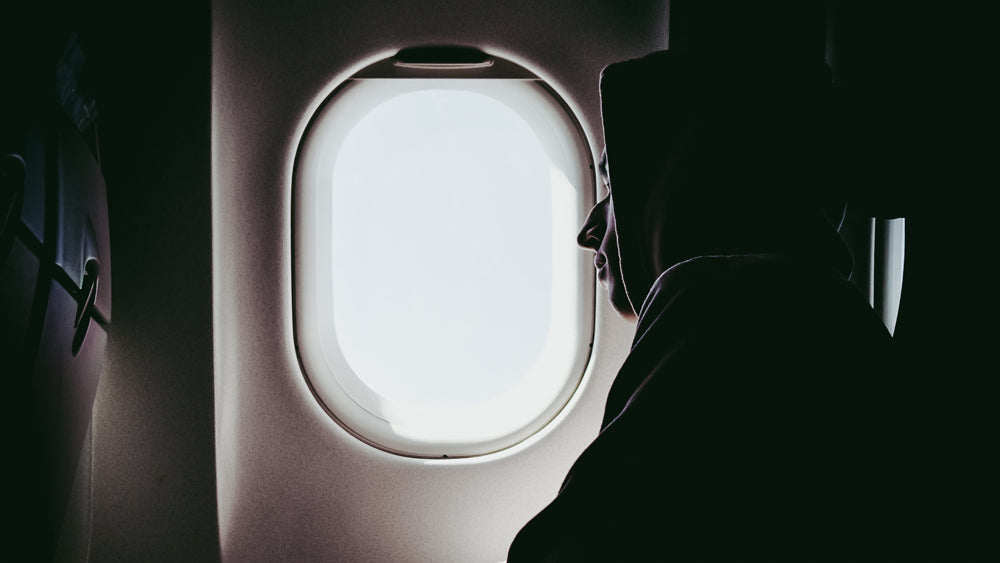How to Deal with Jet Lag When Traveling for Tennis
For tennis players who compete professionally and travel extensively for tournaments and on long flights, jet lag can be a necessary evil that can affect their performance and quality of life Jet lag is a temporary sleep disorder that occurs when the body's circadian rhythms are disrupted by traveling across multiple time zones. It can cause a range of symptoms, including fatigue, insomnia, headaches, irritability, and digestive problems.
You’d think with how often tennis players travel we’d get used to the jet lag right? We don’t. 😴
— sloanestephens (@SloaneStephens) June 21, 2019
However, even us mortals who travel for fun can feel the effects of jet lag every once in a while. In this blog post, we'll provide some tips and tricks for reducing the symptoms of jet lag and adjusting to the local time straight away, whether you are travelling for business, leisure or professional sports.
Plan Ahead
One of the best ways to reduce the impact of jet lag is to plan ahead before your trip. Tennis players should research the destination and the local time zone, and adjust their sleep schedule accordingly. For example, if you're traveling from the United States to Europe, where the time difference is six hours ahead, try to go to bed and wake up earlier in the days leading up to your trip, so that your body can adjust gradually.
During the Flight
Long flights can be exhausting, especially if you're traveling in economy class. To stay awake and alert during the flight, try to get up and move around the plane as often as possible. Drink plenty of water and avoid alcohol and caffeine, as they can dehydrate you and interfere with your sleep. Bring a comfortable neck pillow, eye mask, and noise-canceling headphones to help you relax and sleep on the plane.
Upon Arrival
Upon arrival at your destination, it's important to adjust to the local time as quickly as possible. Tennis players should try to stay awake during the day and avoid napping, even if they feel tired. Exposure to natural light can help reset your body clock and promote alertness, so spend some time outside if possible.
If you arrive early in the day, try to schedule some light physical activity, such as a jog or a yoga class, to get your blood flowing and boost your energy levels. If you arrive late at night, try to get some rest as soon as possible, even if it means going to bed earlier than usual.
Supplements
There are other strategies that tennis players can use to reduce the symptoms of jet lag and adjust to the local time zone. For example, some athletes use melatonin supplements to help regulate their sleep-wake cycle. However, it's important to talk to a doctor or a nutritionist before taking any supplements, as they can interact with other medications and have side effects.
Diet
One important thing to keep in mind when dealing with jet lag is to be careful with what you eat and drink. Some tennis players make the mistake of indulging in heavy meals and alcoholic drinks during long flights, which can negatively affect their performance and exacerbate the symptoms of jet lag. Instead, it's recommended to stay hydrated by drinking plenty of water and eating light, nutritious meals that are easy to digest.
Another strategy is to eat and drink in a manner that supports your circadian rhythms, so you can begin get on local time straight away. For example, if you arrive in a country where it's morning, try to have a light breakfast and avoid heavy, greasy foods that can disrupt your digestion. Similarly, if it's evening, try to have a balanced dinner that includes carbohydrates, protein, and healthy fats, which can help you sleep better.
Exercise
In addition to the strategies mentioned above, exercising can also help reduce the symptoms of jet lag and promote better sleep. Regular exercise can help regulate your body clock and improve your mood, energy levels, and overall well-being.
During long flights, it's important to move around the plane as much as possible, stretch your legs and arms, and do some light exercises to prevent blood clots and stiffness. Simple exercises like walking up and down the aisle, stretching your legs, and doing some seated twists and bends can help improve circulation and reduce discomfort.
Upon arrival, tennis players can also benefit from engaging in some light physical activity, such as jogging, swimming, cycling, or yoga, to help reset their body clock and promote alertness. Exposure to natural light during outdoor activities can also help regulate the sleep-wake cycle and improve mood and cognitive performance.
.@JohnIsner's advice on beating jet lag: "You have to sweat it out; the airplane is too gross. I’ll practice tennis or go to the gym. If I don’t have time I’ll use the sauna or steam room." https://t.co/ooAOoi68go pic.twitter.com/fOr49MqRtw
— New York Times Travel (@nytimestravel) January 15, 2019
The Gradual Approach to Getting on Local Time Straight as You Land.
Another helpful tip for reducing the symptoms of jet lag is to adjust your sleeping habits in the days leading up to your trip. If you know you'll be traveling eastward and losing several hours of sleep, try going to bed earlier and waking up earlier in the days leading up to your departure. Similarly, if you're traveling westward and gaining hours, try staying up later and sleeping in a bit more. This can help your body adjust to the time zone changes more smoothly and reduce the severity of jet lag symptoms upon arrival.
It's also worth noting that jet lag can affect tennis players in different ways, depending on their individual health and physical condition. Some players may experience more severe symptoms, such as headaches, nausea, and fatigue, while others may be more resilient and adapt quickly to new time zones. In any case, it's important to listen to your body and adjust your schedule and routine accordingly.
Conclusion - Jet Lag is Not Just an Issue for Professional Sports
Jet lag is an elusive foe that can affect tennis players' performance, health, and quality of life. However, with careful planning, smart strategies, and a positive attitude, it's possible to reduce the symptoms of jet lag and adjust to the local time zone straight away. As Andy Murray once said, "Jet lag is a necessary evil of professional sports, but the important thing is how you deal with it." By following these tips and tricks, tennis players can stay on top of their game and score those elusive ranking points and prize money.
In conclusion, jet lag is a necessary evil for tennis players who travel extensively for tournaments. It can affect their performance and quality of life, but with careful planning, smart strategies, and a positive attitude as most professional athletes have, we can all mitigate jet lag and get the most out of our travels.



